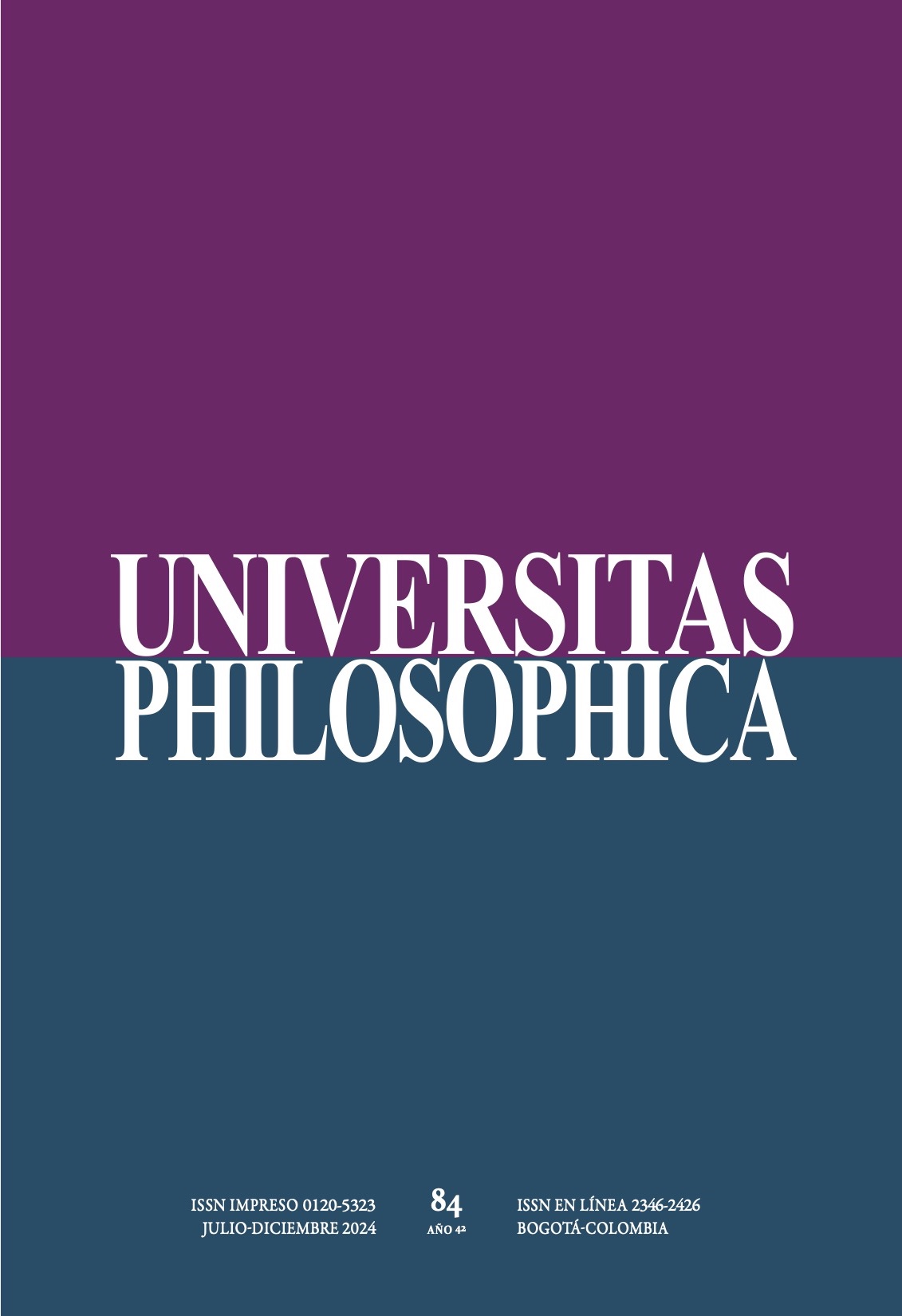Abstract
Artificial Intelligence (AI) is the most efficient form of political and social control, as it has the capacity to design and determine subjectivities. But it also allows us to think of singularity as a disruption of consciousness. A subjectivity is a self-awareness, which constitutes itself as a subject when determined by an external power, consolidates itself as psychopolitics, and can be constituted as an individuality through an internal, creative exercise. The ability to design and create subjectivity enables AI to have an impact on the processes of consciousness, and, at the same time, the subject of algorithmic identity allows us to think of the individual as a disruptive consciousness.
Bostrom, N. (2005). A History of Transhumanist Thought. Journal of Evolution and Technology, 14(1), 1-25.
Bostrom, N. (2013). Existential risk prevention as global priority, Global Policy, Vol 4, Issue 1: 15-31.
Bostrom, N. (2016). Superinteligencia. Caminos, peligros, estrategias (trad. M. Alonso). Teell Editorial.
Butler, J. (2006). Deshacer el género (P. Soley-Beltran, trad.). Paidós.
Butler, J. (2007). El género en disputa. El feminismo y la subversión de la identidad (M. Muñoz, trad.). Paidós.
Butler, J. (2015). Mecanismos psíquicos del poder. Teorías sobre la sujeción (J. Cruz, trad.) Ediciones Cátedra, Universitat de Valencia.
Castro-Gómez, S. (2019). El tonto y los canallas. Notas para un republicanismo transmoderno. Editorial Universidad Javeriana.
Citton, Y. (2014). Pour une écologie de l’attention. Seuil.
Cooper, K. (2023, Sept. 27). OpenAI GPT-3: Everything You Need to Know. Springboard. http://bit. ly/3GLMkmB
Chul Han, B. (2014). Psicopolítica (A. Bergés, trad.). Herder.
Chul Han, B. (2017). La sociedad del cansancio (A. Saratxaga y A. Ciria, trads.). Herder.
Chul Han, B. (2021). La sociedad paliativa. El dolor hoy (A. Ciria, trad.). Herder.
Deleuze, G. & Guattari, F. (1991). Qu’est-ce que la philosophie? Les Editions de Minuit.
Dennett, D. (1995). La conciencia explicada. Una teoría interdisciplinar (P. Weiner, trad.). Paidós.
Derrida, J. (1967). L’écriture et la différence. Éditions du Seuil.
Diéguez, A. (2017). Transhumanismo. La búsqueda tecnológica del mejoramiento humano, Herder.
Foucault, M. (1994). La hermenéutica del sujeto (F. Alvarez-Uría, trad.). Ediciones de la Piqueta.
Foucault, M. (2002). Vigilar y castigar. Nacimiento de la prisión (A. Garzón del Camino, trad.). Siglo XXI.
Foucault, M. (2008). Tecnologías del yo (M. Allendesalazar, trad.). Paidós.
García-Peñalvo, F. (2023). The Perception of Artificial Intelligence in Educational Contexts After the Launch of ChatGPT: Disruption or Panic. Education in the Knowledge Society, 24, pp. 1-9. https://doi.org/10.14201/eks.31279
Guattari, F. (2000). Cartografías esquizoanalíticas (D. Scavino, trad.). Manantial.
Gumbrecht, H. (2020). El espíritu del mundo en Silicon Valley. Vivir y pensar el futuro (S. Yusta, trad.). Deusto.
Hadot, P. (1998). ¿Qué es la filosofía antigua? (E. Tapie Isoard, trad.). Fondo de Cultura Económica.
Heidegger, M. (1997). Filosofía, ciencia y técnica (J. Acevedo, trad.). Editorial Universitaria.
Kurzweil, R. (2005). The Singularity is Near: When Humans Transcend Biology. Penguin.
Lacan, J. (2003). Seminario 8. La transferencia (E. Berenguer, trad.). Paidós.
Lipovetsky, G. (2000). La era del vacío. Ensayos sobre el individualismo contemporáneo (J. Vinyoli y M. Pendanx, trads.). Anagrama.
Lipovetsky, G. (2004). El imperio de lo efímero. La moda y su destino en las sociedades modernas (F. Hernández y C. López, trads.). Anagrama.
Lee, K. (2020). Superpotencias de la inteligencia artificial. China, Silicon Valley y el nuevo orden mundial (M. Baquero, trad.). Deusto.
Sadin, E. (2020a). La inteligencia artificial o el desafío del siglo. Anatomía de un antihumanismo radical (M. Martínez, trad.). Caja Negra.
Sadin, E. (2020b). La silicolonización del mundo. La irresistible expansión del liberalismo digital (M. Martínez, trad.). Caja Negra.
Sadin, E. (2022). La era del individuo tirano. El fin de un mundo común (M. Martínez, trad.). Caja Negra.
Slöterdijk, P. (2012). Has de cambiar tu vida (P. Madrigal, trad.). Pre-Textos.
Warf, B. (2024). Posverdad: Geographies of Post-Truth in Latin America. Journal of Latin American Geography, 23(1), 80-99. https://dx.doi.org/10.1353/lag.2024.a929688.

This work is licensed under a Creative Commons Attribution 4.0 International License.
Copyright (c) 2025 Javier Orlando Muñoz Bastidas



